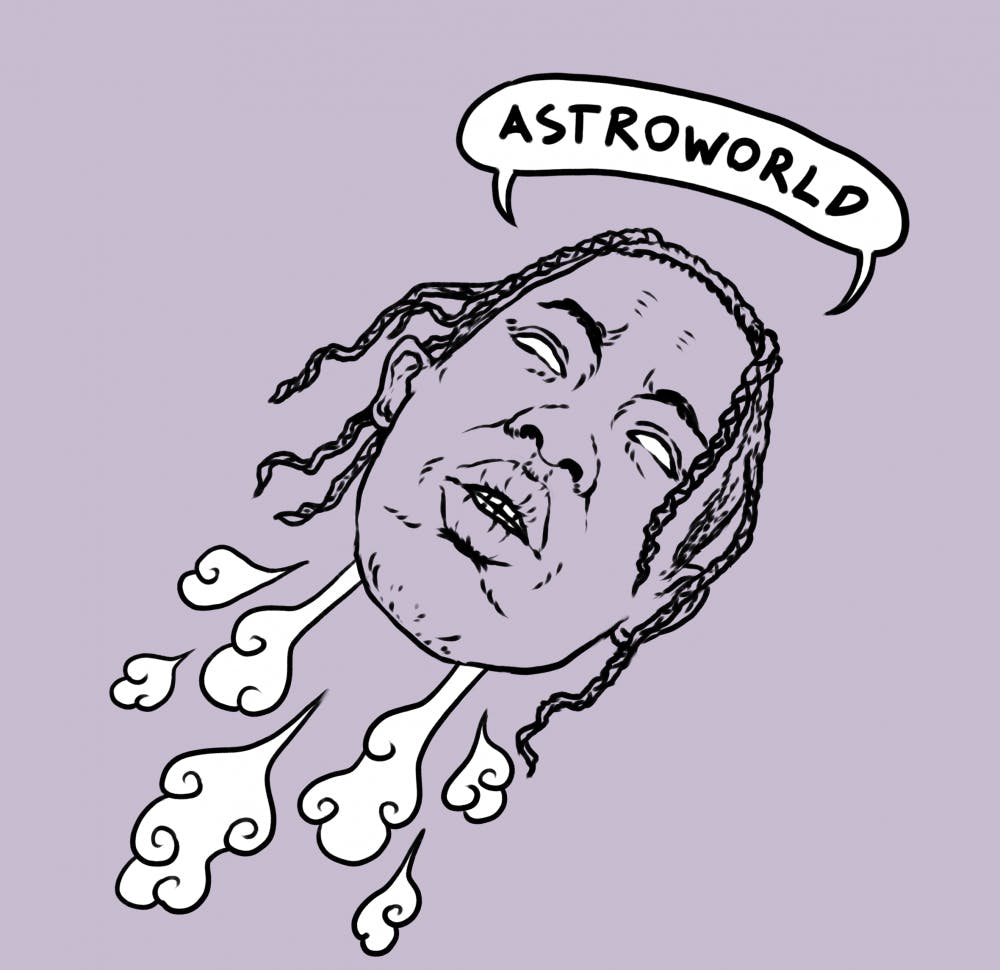For much of 2018, it seemed as if hip hop was in a funk—artist after artist dropped albums with huge expectations that ended up falling short. From the sonic travesty that was Migos’ Culture II in January, to another snooze–fest courtesy of J. Cole with K.O.D., to Drake’s mediocre Scorpion, there has been little to celebrate in the rap sphere. Outside of Kendrick Lamar’s Black Panther: The Album and Kids See Ghosts’ self–titled debut, there was minimal critical acclaim for emcees.
That changed August 3, when Travis Scott dropped the much–anticipated Astroworld. The rapper’s third studio album was an immediate winner, receiving critical acclaim and massive sales success. With hits such as “Butterfly Effect,” “Sicko Mode,” and “Stargazing,” it’s been on repeat for over a month and featured everywhere on campus. However, that begs the questions: What set it apart from other recent records? What did Scott do differently to meet the hype and expectations from critics and fans alike?
He Took His Time
This appears to be an obvious logic—the longer you spend working on a project, the higher the quality of the finished product. Despite being a decent record, it was apparent that Kanye West’s Ye was put together pretty quickly; the album sounded too short and raw. It was unsurprising when the news was released that West redid the album in the last two weeks before its release. On the other hand, Scott clearly took his time with Astroworld. “Butterfly Effect” was put on SoundCloud as the first single all the way back in May 2017, nearly a year and a half in advance. Given the length between the release of the song and the album, it’s evident that Scott was continuing to work on an incomplete project. The result ended up being worth the wait—it was a smart decision.
He Kept It Coherent
At 25 tracks, Drake’s Scorpion was a double album of gargantuan proportions. Frankly, it was far too lengthy, lasting over 88 minutes. With no singular, unifying theme, the tracks are jarringly disjointed. In contrast, Astroworld is balanced. Clocking in at just under an hour, various songs transition into one another seamlessly on the beat, providing continuity and structure. The premises of songs such as “R.I.P. Screw” and “Stop Trying to Be God” are similar, preaching messages of tranquility and metaphysical balance.
He Did What He Does Best
Since the release of early mixtapes such as Days Before Rodeo and his first album Rodeo, Scott has stuck to a central style where he combines aspects of trap and psychedelic rap. He’s brought it to life with trippy images for music videos such as “Antidote” and “Goosebumps,” which is why the “Butterfly Effect” visuals almost feel like a conclusion to a trilogy. In general, Scott didn’t necessarily innovate with his gloomy lyricism and dark production—he mastered it. The beat changes on “Stargazing” and “Sicko Mode” are impeccably timed; the chorus on “No Bystanders” nails the banger vibe; and the content of “Stop Trying to Be God” is full of depth and learning. Scott pleased both old and new fans by maintaining his flair and expanding his subject material.
Taking that all together, it’s clear as to why Astroworld lived up to the hype that has been building since the success of his previous release, Birds in the Trap Sing McKnight. While experimenting with different styles and approaches might occasionally result in success for some artists, Scott stuck to elements that have worked for him in the past and perfected his craft. Ultimately, it culminated in the hip–hop album of the year.

